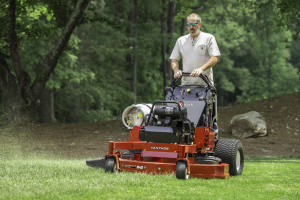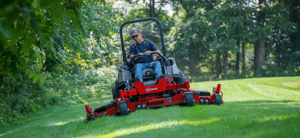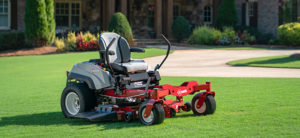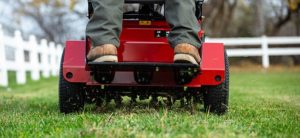Everyone knows how devastating natural disasters can be to homeowners. Flood, fires, droughts, tornadoes—these catastrophic events force people out of their homes and wreak havoc on their lives.
They can also impact local businesses. This is especially true for landscaping companies. Because your business depends on homeowners and building owners having outdoor features to maintain, you could be dependent on other’s ability to repair and rebuild before steady work comes your way again.
While a natural disaster can be a setback, it doesn’t have to mean the end of your business. These tips for coming back even stronger can help keep you on track and even play a supporting role in the rebuilding process.
- Know Your Area: Where you live and work will determine what kinds of natural disasters are most common. In this instance, forewarned is forearmed. Do your research to find out what kind of events are the most likely and how long the rebuilding process takes afterward. This way, you can be prepared with the right tools and equipment to help homeowners and business owners get back on track.
- Invest in Insurance: If flooding or seasonal fires are a threat to your area, see if Business Interruption Insurance is an option. Although not every insurance company will provide automatic payouts for your loss of business due to flooding in the area (as opposed to flooding to your actual facility), there may be options for you to expand your coverage to include this.
- Adapt Your Offerings: You might be more accustomed to mowing lawns than repairing them from a flood, or you might specialize in seeding and spraying rather than windstorm recovery, but now is a good time to adjust the work you do. After a disaster, many homeowners and businesses need manual labor and hauling services to clear away debris and damaged items. If you can adapt your team and trucks/trailers in the short term, it may help tide you over a slow patch.
- Create “Disaster” Specials: We know, it sounds bad to take advantage of a natural disaster to make a profit, but this is one time it’s okay to advertise and adapt. Cleaning up after a catastrophic event is an expensive business for everyone, so if you’re able to slash prices for those most affected, do it. It’s a great way to reach out to your community and drum up future business—and keep your own business afloat in the meantime.
- Donate Time/Support: If possible, donate your time, services, and equipment to the cleanup process. We know this isn’t financially viable for everyone, but if you’re able to donate some time to the immediate clean up, it’s a great idea. People tend to remember those who help them, and if your business is a visible partner in recovery, they may be more likely to recommend or hire you when they’re back on their feet.
- Provide Time Off: Don’t overlook the impact the devastation of a natural disaster has on your own employees and lawn care team. They may have homes damaged by the event, or they may be busy pitching in to help their own neighbors and friends recover. Consider providing additional vacation/sick days, as needed.
- Think of Next Year: One thing that remains true of every natural disaster is that people recover and families rebuild. Know what people will need to do for their lawns next year, and put together a “Post-Flood” or “Post-Fire” recovery plan. Make sure you have all the tools and supplies you need to help them get their lawns, farms, and exteriors back to normal.
Above all else, be as much of a partner as you can during this time. Everyone will be struggling and looking for ways to cut back on costs, so anything you can do to support them will go a long way in building your brand and reputation.
SHARE






